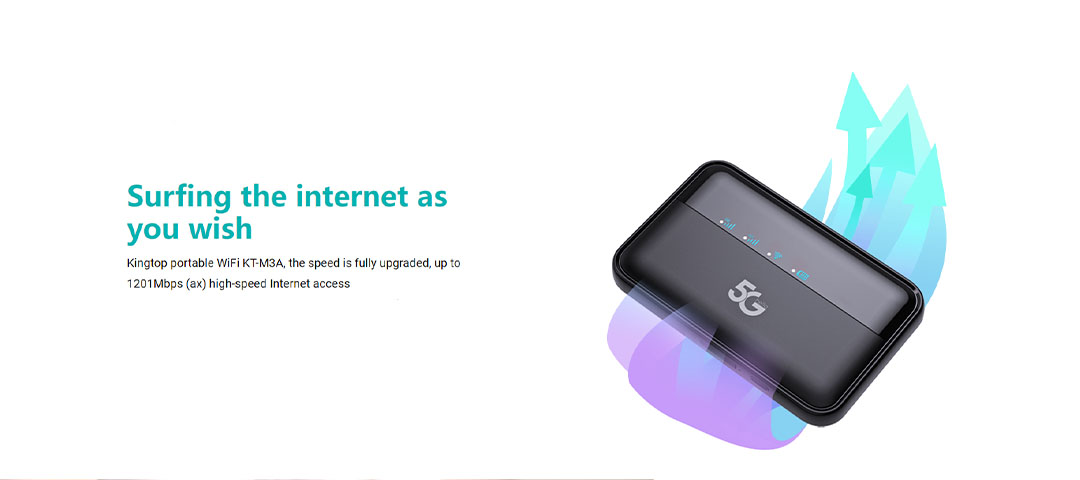When it comes to choosing between 4G mobile hotspots and 5G mobile hotspots, it's important to consider various factors to determine which option suits your needs best. Let's delve deeper into the features and benefits of each to help you make an informed decision:
4G Mobile Hotspots
4G mobile hotspots have been around for a while and have proven to be reliable options for staying connected on the go. Here are some key aspects to consider:
Speed and Performance: 4G networks offer decent download and upload speeds, making them suitable for most everyday tasks such as web browsing, email, and video streaming. While they may not match the blazing-fast speeds of 5G, they still provide reliable connectivity for various applications.
Coverage and Availability: 4G networks have comprehensive coverage in many regions, making them widely accessible. This makes 4G mobile hotspots a suitable choice for those living in areas where 5G infrastructure is still limited or unavailable.
Affordability: 4G mobile hotspots often come at a lower price point compared to their 5G counterparts. If you have budget constraints, choosing a 4G mobile hotspot can provide a cost-effective solution.

5G Mobile Hotspots
The advent of 5G technology has propelled mobile hotspots to new heights in terms of speed and capabilities. Here's why you might consider a 5G mobile hotspot:
Lightning-Fast Speeds: 5G networks provide unmatched speed, enabling seamless streaming, online gaming, and lightning-fast file downloads. If you require high-bandwidth activities or faster data transfer, a 5G mobile hotspot can provide an exceptional experience.
Reduced Latency: Latency refers to the delay between sending and receiving data. 5G networks boast significantly lower latency compared to 4G, enabling real-time interactions, responsive gaming experiences, and smooth video conferencing.
Future-Proof Technology: 5G is the next generation of wireless connectivity, and its infrastructure is rapidly expanding. Investing in a 5G mobile hotspot ensures you're ready to take advantage of future advancements in technology and network capabilities.
Enhanced Connectivity: 5G networks can handle a massive number of connected devices simultaneously. This makes 5G mobile hotspots ideal for crowded areas where multiple devices need reliable and fast internet access.

The Advantages Of 5G Mobile Hotspots Over 4G Mobile Hotspots
Blazing-Fast Speeds: The exceptional speed offered by 5G mobile hotspots is one of their most notable advantages. With download and upload speeds several times faster than 4G, you can enjoy uninterrupted streaming, rapid file downloads, and an online gaming experience free from lag.
Ultra-Low Latency: Compared to 4G, 5G networks exhibit considerably lower latency. Latency refers to the delay between sending a request and receiving a response. With 5G's reduced latency, activities that necessitate real-time interaction, such as online gaming, video conferencing, and remote robotic control, become exceedingly responsive and immersive.
Enhanced Capacity and Connectivity: 5G networks have significantly higher capacity compared to 4G. They can handle a massive number of connected devices within a small area simultaneously. This is particularly beneficial in crowded environments like festivals, stadiums, or urban centers where multiple devices need to connect to the network without experiencing congestion or performance degradation.
Improved Network Efficiency: The design of 5G networks prioritizes efficiency in resource allocation and energy consumption. They utilize advanced technologies like network slicing and beamforming, which optimize the utilization of network resources and reduce energy wastage. As a result, overall network performance improves, and a more sustainable approach to wireless connectivity is achieved.
Enabling Innovative Applications and Use Cases: The high speeds, low latency, and increased capacity of 5G open up a vast array of innovative applications and use cases. For instance, it can support advanced augmented reality (AR) and virtual reality (VR) experiences, enable seamless 4K and 8K video streaming, facilitate the development of smart cities and connected industries, and power the Internet of Things (IoT) ecosystem.
Future-Proof Technology: Investing in a 5G mobile hotspot ensures that you are prepared for the future of wireless connectivity. As 5G technology continues to evolve, new features and capabilities will be introduced, further enhancing the performance and potential of 5G mobile hotspots. By adopting 5G early on, you can stay ahead of the curve and benefit from forthcoming advancements.
Network Expansion and Development: 5G networks are being rapidly deployed and expanded worldwide. While 4G networks already offer extensive coverage, 5G infrastructure is growing, and its availability is increasing day by day. This means that over time, you can expect broader coverage and improved connectivity options with a 5G mobile hotspot.
Improved User Experience: The combination of high speeds, low latency, and increased capacity offered by 5G mobile hotspots significantly enhances the overall user experience. Activities such as video conferencing, online collaboration, cloud computing, and media streaming become smoother, more efficient, and more enjoyable with 5G.
It's important to note that while 5G mobile hotspots offer numerous advantages, their availability may vary depending on your location. Before investing in a 5G mobile hotspot, it's advisable to check the coverage and availability of 5G networks in your area to ensure optimal performance and connectivity.
Conclusion
Ultimately, the choice between 4G and 5G mobile hotspots depends on your specific requirements, budget, and the availability of 5G infrastructure in your area. If you prioritize affordability and widespread coverage, a 4G mobile hotspot might be the right choice. However, if you crave lightning-fast speeds, reduced latency, and want to embrace the future of wireless connectivity, a 5G mobile hotspot can unlock a whole new level of performance and possibilities. When making a decision, it's important to consider your specific needs, carefully evaluate the advantages and disadvantages, and choose an option that aligns with your connectivity goals.


 French
French German
German Arabic
Arabic Italian
Italian Spanish
Spanish Japanese
Japanese Persian
Persian Korean
Korean Chinese (Simplified)
Chinese (Simplified)









